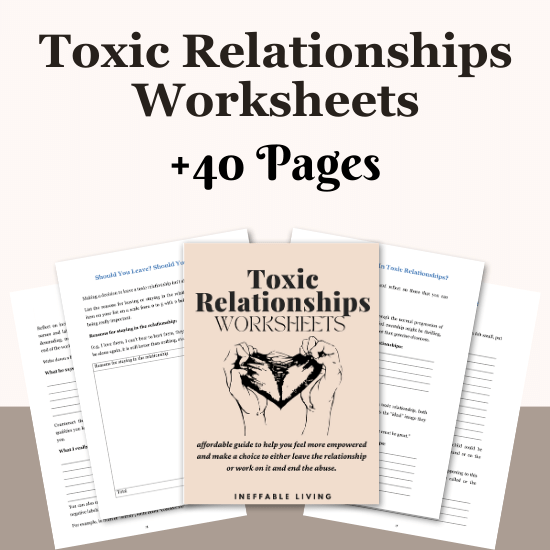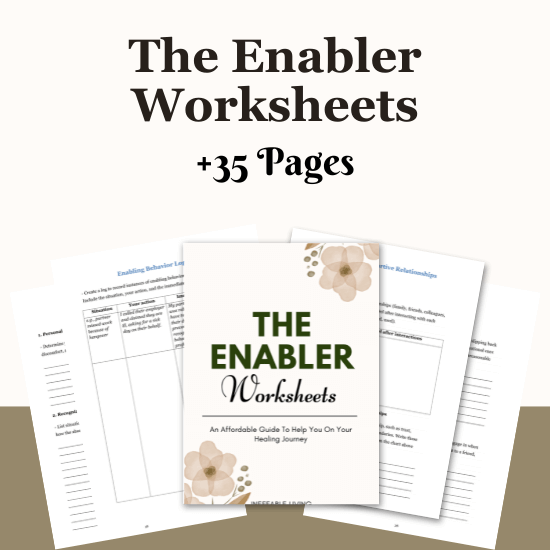This post contains the echoist quiz as well as helpful tips to overcome echoism.
Echoist Quiz
Are you an echoist? Answer the following questions to find out:
Results
#1. Do you often feel uncomfortable being the centre of attention?
#2. Do you usually prioritize other people’s needs over your own?
#3. Do you often avoid saying anything that contradicts your partner?
#4. Do you often resent your partner’s behavior but never say so.
#5. Do you often feel like you don’t know what to do with your free time because you have no sense of who you are, what you like, what you want, etc.
#6. Do you often blame yourself when things go wrong even when it’s not your fault?
#7. Do you usually find it difficult to accept compliments or praise because you don’t think they’re genuine or that you deserve them?
#8. Do you always listen to other people’s problems, but never talk about your own?
Results
The questions above represent common signs of echoism. If you answered yes to most of these questions, then you might be an echoist and it might be time to seek help.
Who Is The Echoist?
Echoism is the fear of seeming narcissistic.
Echoists fear being the center of attention or a burden to others. They tend to, instead, be overly modest and overgiving.
Echoists prefer to stay in the shadow. It’s not necessarily because they feel ashamed or defective, though some might.
As the Japanese saying goes, “The nail that stands out gets pounded down.”
Echoists tend to be vulnerable to abuse from dark personality types like narcissists and psychopaths.
Related: Top 5 Reasons Why Narcissists Target Empaths – & How to Starve The Narcissist of Supply
The story of Narcissus and Echo
Echo was a “talkative nymph” that was cursed. She could only repeat the last words of a sentence and is unable to say anything on her own.
Sometime later, Echo spied a young man, Narcissus, while he was out hunting deer with his companions.
She immediately fell in love with him and, infatuated, followed quietly.
During the hunt, Narcissus became separated from his companions and called out, ‘is anyone there,’ and Echo repeated his words.
Startled, Narcissus answered the voice, ‘come here,’ only to be told the same.
When Echo rushed to Narcissus ready to throw her arms around her beloved. She was cruelly rejected.
Despite the harshness of his rejection, Echo’s love for Narcissus only grew.
When Narcissus died, wasting away before his own reflection, Echo mourned over his body and she too began to waste away.
Today, all that remains of Echo is the sound of her voice.
Traits Of An Echoist
1. Lack Of Sense Of Self
Echoists worry so much about seeming needy or selfish that it’s often difficult for them to recognize they have any needs at all.
Although they might feel depleted, what they need to replenish themselves is buried so deep they don’t even know how to ask for it.
Related: Top +100 Journal Prompts For Mental Health [+Free PDF Printable!]
2. Fear of Becoming Narcissistic
Echoists are constantly on guard for any signs of selfishness or arrogance in themselves, so much so that they can’t even allow others to praise them or express their appreciation.
This can make relationships feel one-sided and push people away.
3. Fear of Taking Up Space
Even subtly expressing their needs can make them feel selfish, guilty, or undeserving.
In the mind of an echoist, the less room they take up with their own needs and problems, the more likable or lovable they become.
4. Avoiding Attention
Echoists fear being in the spotlight.
But echoists aren’t allergic to all attention, especially when they’re subtle, covert echoists.
It is fine for an echoist to be noticed for what they do for others—being a supportive partner, or good friend.
The only sign of echoism wound be the one-sided nature of their support.
Related: Self-Abandonment: What Is It & How To Get Back In Touch With Yourself
5. Low Self-Esteem
Echoists struggle with feelings of low self-esteem and sense of self-worth.
They feel undeserving of having needs or expressing them.
6. Caretaking
Echoists tend to overgive and undertake, even at the cost of their well-being.
They focus completely on other people and their problems and needs and tend to have no sense of self.
Some echoists would ask for little things, such as gifts or more attention from their partner, but they keep very close tabs on how much they ask for fear of seeming selfish.
Related: Caregiving vs Caretaking (The Savior Complex)
7. Poor Boundaries
Echoists don’t believe they deserve setting boundaries.
They’re overly concerned with pleasing other people and they fear setting boundaries would cause the other person to get upset or feel rejected.

How to Overcome Echoism?
You don’t have to either be a narcissist of an echoist. There is something in between.
A healthy sense of self and healthy, interdependent relationships.
#1. Become Aware Of How Echoism Is Hurting You
Becoming aware of the dangers of echoism can be a motivation for an echoist to open up to connecting with themselves.
But feeling undeserving, awareness of how echoism is hurting an echoist, might not be motivating enough.
Echoism doesn’t just affect the echoist and their emotional well-being (low self-esteem, lack of sense of self, burnout, anxiety, etc.), it also hurts their relationships with other people.
Not being able to accept and receive help, a relationship with an echoist feels one-sided.
This either leads to unhealthy patterns of caretaking or cause their partner to feel frustrated.
#2. Challenge Your Negative Beliefs
The problem is almost never the behavior, but what drives the behavior – the underlying beliefs.
Echoists believe that having needs and taking up space is selfish and narcissistic.
It’s important here to clarify what narcissism means.
Narcissism isn’t having needs or taking up space.
Narcissism is having an inflated sense of your own importance, a deep need for attention and admiration, and a lack of empathy.
A narcissist is never worried about being too needy or taking up too much space. So, if you’re worried you might be a narcissist, then you probably are not one.
Download Negative Thoughts Worksheets PDF
#3. Open Up To Receiving Praise
As an echoist, you might find it difficult to ask for support and allow yourself to receive it, yet.
Opening up to receiving praise and attention for your accomplishment can be a first, less challenging step to help you feel more comfortable receiving from others.
Related: Best 9 Tips On How To Receive More In Life And Relationships?
#4. Cultivate Healthy Sense of Entitlement
Healthy entitlement can help us seek support when we need it or protect ourselves from abuse by saying “no” to unreasonable demands and assert ourselves when we’re feeling mistreated.
Use the following Personal bill of rights to help you feel more deserving.
Download Personal Bill of Rights PDF
#5. Setting Boundaries
Identify areas in your life where you need stronger boundaries. Consider what limits would help you feel respected and valued.
Begin setting small, achievable boundaries with others. Communicate these boundaries clearly and kindly.
Here are some boundaries that are particularly important for echoists to consider setting:
– Protection from Emotional Dumping: State that while you’re willing to support others, your emotional well-being should not be compromised by taking on everyone else’s problems.
– Permission to Disengage: Give yourself permission to step back or disengage from conversations that are harmful or overwhelming.
– Personal Time: Allocate specific times for self-care and personal activities, making it clear that you’re unavailable for others during these periods.
– Balancing Availability: Communicate your willingness to help or be present for others, but not at the expense of your own needs and commitments.
– Equal Partnership: Seek relationships where there’s mutual respect and support, not just one where you’re always the giver.
– Work-Life Balance: Clarify your working hours and commitment to maintaining a balance between work and personal life.
Related: 7 Types of Boundaries (+FREE Worksheets)
#6. Explore Interests and Values
Spend time exploring your own interests, hobbies, and values. Engaging in activities that you enjoy and that matter to you can boost self-confidence and help you understand yourself better.
Volunteering or participating in community activities can provide a sense of purpose and belonging.
#7. Learning to Accept and Voice Your Needs
Practice identifying and stating your needs in situations, even if it’s just to yourself at first.
Remember that your needs are valid and communicating them is a healthy part of relationships.
Related: Top 7 Signs People Pleasing Is a Trauma Response
#8. Embracing Discomfort
Understand that growth involves discomfort. Speaking up and asserting yourself may feel uncomfortable at first, but it’s a crucial part of overcoming echoism.
Celebrate small victories and learn from experiences without self-criticism.
Related: Fear of Disappointing Others: Top 10 Ways to Overcome it
FAQs
How is echoism different from narcissism?
While narcissists crave attention and admiration, echoists avoid it and may fear being a burden to others.
What causes echoism?
Echoism often stems from childhood experiences, such as having emotionally unavailable or critical caregivers, or being conditioned to focus solely on others’ needs.
Is echoism a psychological disorder?
No, echoism is not a disorder but a personality trait that can impact mental health and relationships.
How does echoism affect relationships?
Echoists may struggle with setting boundaries and often attract narcissistic partners, leading to imbalanced relationships.
Can echoism lead to burnout?
Yes, echoists often neglect self-care, leading to physical, emotional, or mental exhaustion.
How does echoism develop in families?
Children in families with narcissistic or overly demanding caregivers may develop echoism as a survival strategy to avoid conflict or criticism.
What’s the connection between echoism and low self-esteem?
Echoists often have low self-esteem because they suppress their own needs and derive worth from pleasing others.
Are echoists always introverted?
No, echoism can exist in extroverted individuals as well, though it’s often associated with introversion.
Can echoism be healthy?
In moderation, caring for others is healthy, but extreme echoism can be harmful to one’s well-being.
How does echoism relate to codependency?
Echoism and codependency overlap, but echoists tend to avoid attention, while codependents often seek validation through helping.
Is echoism linked to trauma?
Yes, echoism can be a response to trauma, especially in relationships where the individual learned to prioritize others to avoid harm.
Do echoists suppress emotions?
Often, yes. Echoists may suppress emotions to avoid drawing attention to themselves or burdening others.
Are echoists people-pleasers?
Many echoists are people-pleasers, but not all people-pleasers are echoists.
Conclusion
Echoism is a term that has been used to describe individuals who have a tendency to suppress their own needs, desires, and voice, often to avoid conflict or to seek approval from others.
This term originates from the myth of Echo, a nymph who was cursed to only repeat the words of others, thus losing her own voice.
Echoists often find it hard to express their own opinions, assert boundaries, or recognize their own value, typically as a result of being raised in environments where their needs were ignored or dismissed.
Overcoming echoism involves several key steps aimed at building self-esteem, learning assertiveness, and recognizing one’s own worth.
Overcoming echoism is a journey towards finding and using your own voice, recognizing your worth, and living a more authentic life.
It’s about moving from the shadows into a space where you can express yourself freely and confidently.

References
- Portions of this article were adapted from the book Rethinking Narcissism, © 2017 by Craig Malkin. All rights reserved.
- Narcissism – Wikipedia
- Echoism: Defintion, Signs, Causes, and More (healthline.com)
- Echoism – the silent condition in narcissistic relationships – Counselling Directory (counselling-directory.org.uk)







